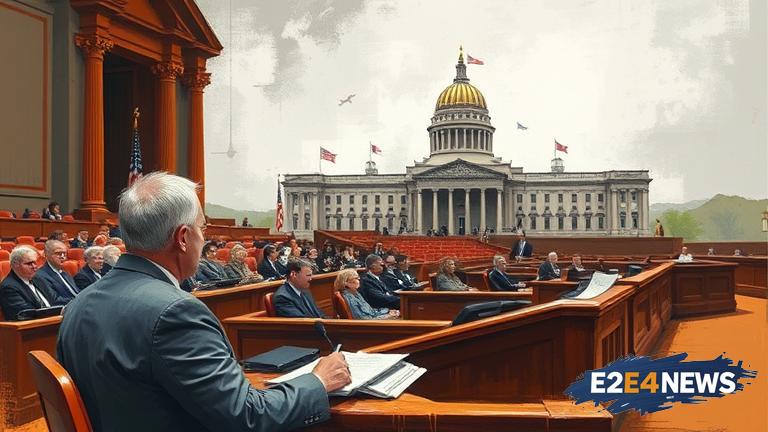Nebraska lawmakers have taken a significant step towards limiting the governor’s emergency powers, as a bill that would allow the Legislature to have more oversight during times of crisis has advanced. The bill, which was introduced by Senator Tom Briese, aims to provide a check on the governor’s authority during emergency situations. Currently, the governor has broad powers to respond to emergencies, including the ability to suspend laws and regulations, and to deploy the National Guard. However, some lawmakers have expressed concerns that these powers are too broad and could be abused. The bill would require the governor to notify the Legislature within 24 hours of declaring a state of emergency, and would also require the governor to provide regular updates to lawmakers on the status of the emergency. Additionally, the bill would allow the Legislature to terminate a state of emergency by a majority vote. Proponents of the bill argue that it is necessary to ensure that the governor does not overstep his authority during times of crisis. They also argue that the bill would provide more transparency and accountability, as lawmakers would be able to review the governor’s actions and provide oversight. Opponents of the bill, on the other hand, argue that it would hinder the governor’s ability to respond quickly and effectively to emergencies. They also argue that the bill would create unnecessary bureaucracy and delay. The bill has been the subject of much debate and discussion, with some lawmakers expressing concerns about the potential consequences of limiting the governor’s powers. Despite these concerns, the bill has advanced, and it is now headed to the full Legislature for consideration. If passed, the bill would mark a significant shift in the balance of power between the governor and the Legislature during times of crisis. The bill has also sparked a wider debate about the role of government during emergencies, and the need for checks and balances on executive authority. Some lawmakers have argued that the bill is necessary to prevent the governor from abusing his powers, while others have argued that it would undermine the governor’s ability to respond to emergencies. The bill has also been seen as a response to the COVID-19 pandemic, during which the governor used his emergency powers to impose restrictions and take other measures to slow the spread of the virus. Some lawmakers have expressed concerns about the governor’s use of these powers, and have argued that the bill is necessary to prevent similar situations in the future. The bill has been supported by a number of lawmakers, including Senator Briese, who has argued that it is necessary to ensure that the governor does not overstep his authority. The bill has also been opposed by a number of lawmakers, who have argued that it would hinder the governor’s ability to respond to emergencies. The debate over the bill is likely to continue, as lawmakers consider the potential consequences of limiting the governor’s powers. The bill has also sparked a wider debate about the role of government during emergencies, and the need for checks and balances on executive authority. In conclusion, the bill to limit the governor’s emergency powers has advanced, and it is now headed to the full Legislature for consideration. The bill has sparked a significant debate about the role of government during emergencies, and the need for checks and balances on executive authority. While some lawmakers have expressed concerns about the potential consequences of limiting the governor’s powers, others have argued that it is necessary to prevent the governor from abusing his authority. The outcome of the bill is still uncertain, but it is clear that it has sparked a significant debate about the balance of power between the governor and the Legislature during times of crisis.





